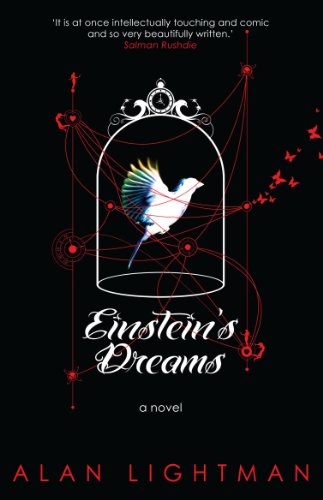Einstein’s Dreams by Alan Lightman Link to heading
Summary Link to heading
“Einstein’s Dreams” is a novel by Alan Lightman that imagines a series of dreams experienced by Albert Einstein in 1905, a year of pivotal developments in his work. Each dream vignette explores a different conception of time, offering a unique scenario of how people might live under varying theories of temporal reality. These dreams are philosophical reflections on the nature of time and reality, illustrating how they influence human emotions, life choices, and social structures. The novel does not follow a traditional plot but instead presents a collection of metaphysical musings tied together through the character of young Einstein.
Review Link to heading
Lightman’s “Einstein’s Dreams” has been praised for its imaginative narrative and lyrical prose. The book’s strength lies in its ability to weave complex philosophical ideas into accessible and thought-provoking stories. Each vignette provides a fresh perspective on time, encouraging readers to reflect on their own perceptions and experiences. However, some readers may find the lack of a coherent plot and character development a weakness. The abstract nature of the text can be seen as both a strength, in its depth, and a barrier, for those preferring more concrete stories.
Key Takeaways Link to heading
Perspective on Time: The book challenges conventional perceptions of time, presenting various hypothetical realities that show time’s profound impact on human lives.
Philosophical Reflections: Each dream serves as a philosophical exploration, examining themes such as mortality, love, ambition, and the nature of existence.
The Role of Science in Understanding Reality: Through these imaginative scenarios, Lightman underscores the importance of scientific contemplation in shaping one’s understanding of the world.
Recommendation Link to heading
“Einstein’s Dreams” is recommended for readers interested in science, philosophy, and literature. Those who enjoy speculative fiction and exploring abstract concepts will appreciate Lightman’s elegant and thought-provoking prose. It is particularly suitable for readers who like to ponder profound existential questions and enjoy works that blend scientific ideas with creative storytelling.
